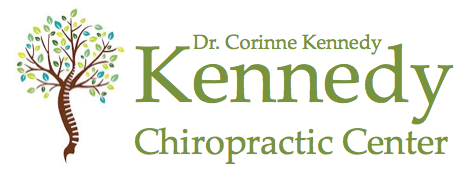Maintaining Your Memory as You Age

Have you noticed a change in your ability to remember things over the years? Perhaps an appointment has slipped your mind, or you find yourself headed to the garage but forget why you needed to go there in the first place?
While people of every age experience memory lapses, these blips can become more concerning as we age. But don’t worry! Occasional, brief memory lapses are a completely normal part of aging. Over the years, the way our brain processes information can slow down slightly, making it more challenging to learn new skills and ignore distractions. Luckily, scientific research into memory and aging has provided lots of useful strategies to keep your brain sharp well into your 70s, 80s, and beyond.
Here are some of our favorites:
Keep your brain active
We’ve all heard the phrase “use it or lose it,” and this certainly applies to memory and the brain. Challenge yourself with one or more of the following exercises to stimulate brain activity and keep your memory sharp:
- Commit to lifelong learning! Pick up a new hobby or take a free class online with sites like coursera.org or class-central.com.
- Play games that activate the brain, like crossword puzzles, chess, scrabble, or even video games with your kids or grandkids.
- At work, volunteer for a project that requires you to step outside your zone of expertise and learn a new skill.
- Be creative! Paint, draw, write your life story, redesign your home’s furniture layout, or have fun planning an active vacation.
Practice good health habits
This is good advice for maintaining and improving all aspects of your health, but studies have shown the following habits decrease the possibility of aging-related memory loss and dementia:
- Stay active. Commit to at least 30 minutes of exercise per day, and find hobbies that keep you moving.
- Eat a nutritious diet rich in fruits, vegetables and whole grains while limiting saturated fat, simple carbs, and sugar.
- Get enough sleep. Most adults function best on at least seven hours per night.
- Don’t smoke and limit alcohol to one drink per day.
- Maintain strong social relationships.
- Follow your doctor’s advice and weave in other healthy practices like chiropractic care, meditation, and mindfulness.
Stay on top of specific health concerns
No matter how well you maintain your general health, your memory and ability to learn can still suffer if you have untreated (or undertreated) medical conditions like…
- When blood glucose levels surge, blood supply to the brain can be impaired. As a result, memory and cognition can suffer. If you have diabetes, be sure to follow your doctor’s orders and take any prescribed medications.
- High blood pressure. Particularly for women, the surges in blood to the brain that result from elevated blood pressure can cause lasting memory problems. Keep an eye on your diastolic blood pressure (the bottom number in a blood pressure scan) and practice healthy habits to keep your levels normal.
- Sleep disorders. It is obvious to many that lack of sleep leads to impaired brain functioning and memory, but these challenges are heightened in people who suffer from sleep apnea (a condition in which you stop breathing intermittently during sleep). If you suffer from sleep apnea, a continuous positive airway pressure machine can help you sleep better and improve cognition.
- Research shows that those with depression experience elevated levels of cognitive decline, and adults who already have cognitive impairment and depression are more likely to develop Alzheimer’s disease as they age. If you feel depressed, see your doctor to start on the road back to wellness.
- High cholesterol. High cholesterol has shown to contribute to cognitive decline as people age. Though results are inconclusive on whether too much “bad” cholesterol (LDL) or too little “good” cholesterol (HDL) is the deciding factor on brain impairment, it is always a good idea to boost levels of HDL cholesterol through exercise and eating a healthy diet.
Tips for improving memory and recall
No matter our age, we can all use a little practice sharpening our memory. Here are some simple and fun tricks for improving your recall and brain functioning:
- Use mnemonic devices. Get creative when you need to remember something important! Mnemonics come in acronym (such as ROY-G-BIV to remember the colors of the rainbow) and sentence form (such as Every Good Boy Does Fine to remember the notes of the treble clef).
- Repeat, repeat, repeat. When you want to remember something, repeat it out loud to yourself or write it down. This is especially helpful when remembering people’s names.
- Tap into your five senses. Studies show that the more senses you involve when learning something new, the more likely your brain will remember it.
- Be smart with your mental energy. We live in a time when your brain doesn’t need to do all the remembering for you! Set reminders on your phone or write yourself notes to clear up brain space for other things.
- Don’t believe the hype. Interestingly, research shows that those who believe negative stereotypes about aging-related memory loss are, in fact, more likely to experience memory loss! Have confidence in your ability and skills to keep your memory sharp.
Remember, just like a chiropractor can help keep your body in good health, with the right approach you can can keep your mind sharp and in good health as you age with grace.



